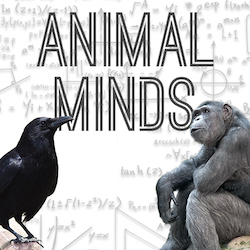Discovery Institute's Blog, page 109
December 11, 2015
Ten Myths About Dover: #10, "The Intelligent Design Movement Died After the Dover Decision"

Editor's note: The Kitzmiller v. Dover decision has been the subject of much media attention and many misinterpretations from pro-Darwin lobby groups. With the tenth anniversary of Kitzmiller approaching on December 20, Evolution News offers a series of ten articles debunking common myths about the case.
In December 2005, Judge John E. Jones ruled that intelligent design is not science, but religion. Critics predicted this would mean the end of the ID movement.
Expert witness Kevin Padian...
Ten Myths About Dover: #10, The Intelligent Design Movement Died After the Dover Decision

Editor's note: The Kitzmiller v. Dover decision has been the subject of much media attention and many misinterpretations from pro-Darwin lobby groups. With the tenth anniversary of Kitzmiller approaching on December 20, Evolution News offers a series of ten articles debunking common myths about the case.
In December 2005, Judge John E. Jones ruled that intelligent design is not science, but religion. Critics predicted this would mean the end of the ID movement.
Expert witness Kevin Padian...
Are Apes Entering the Stone Age?

Last week we looked at the fact that very simple life forms that do not have brains attempt to survive, adapt in order to do so, and often communicate for that purpose. Yet they are probably not conscious and do not likely have a sense of self. Something seems to process a large amount of information in or for them.
 Studying ourselves sheds little light on animal mind because human mind or consciousness is the greatest unsolved problem in philosophy. But we might continue to explore the ques...
Studying ourselves sheds little light on animal mind because human mind or consciousness is the greatest unsolved problem in philosophy. But we might continue to explore the ques...
Can You Perceive a Star That's No Longer There?

At Uncommon Descent, V.J. Torley has a superb post on the question of objects of perception. He raises a profound question: If perception of an object entails a genuine encounter with the object, how can we perceive a star that we know does not actually exist now? He uses the example of a supernova in a distant galaxy -- we see the star (a supernova), but we know, from astrophysics, that the star has actually disintegrated, and the only reason we perceive that it still exists is that the lig...
December 10, 2015
Respect for Kinesin Grows

The Discovery Institute video "Workhorse of the Cell: Kinesin" premiered last year on YouTube. Since then, additional facts about these molecular motors have come to light. Some highlights:
Relay Handoff
Kinesin-II, one of the extended family of kinesin motors, is involved in a "relay race" on a micro-miniature scale. It demonstrates how different families of molecular motors cooperate. This one works in synergy with other cargo-carrying motors in the important complex function known as "int...
At the Intersection of Phrenology and Public Policy
My colleague Ann Gauger has an excellent post on the recent PNAS study examining the structural differences between the brains of men and women. I'd like to add a few thoughts.
The researchers studied the brains of men and women using fMRI imaging to measure the size of gyri and other brain regions and to measure several brain tracts that connect regions of the brain. They conclude that while there are some differences in the measurements of men and women, the average differences are dwarfe...
Helping a Student to Investigate the Origins Debate

Author's note: Recently I had a friendly conversation with a young man who has been researching intelligent design and evolution. He comes from a faith background but was troubled by questions about science and origins. After we were done chatting, I sent him a list of resources on key topics which might be helpful to other readers of Evolution News. In no particular order:
Unlocking the Mystery of Life: I gave you a DVD of the documentary Unlocking the Mystery of Life. This is great if you...
December 9, 2015
Academic Freedom for Thee...What About Me?

There is no field more perilous for open-minded scholars than evolutionary biology. So this caught my eye. Journalist Menachem Wecker has co-written a whole book on academic freedom. Now, with a piece in the National Catholic Reporter, Wecker gives a prcis of what it means for scholars to enjoy the freedom to teach and think without fear. What will he say about the question of Darwin versus design?
Just this:
Contrary to popular belief, academic freedom isn't a get-out-of-jail-free card. Ins...
Darwin's Origin Is Voted Most "Influential," but Here's the Rest of the Story

Recently to mark Academic Book Week, Charles Darwin's On the Origin of Species was named history's most influential academic book. Out of twenty titles (including works by Plato, Shakespeare, and Marx) assembled by librarians, publishers, and booksellers in the UK, the public voted Darwin's as the most significant.
But in terms of actual scientific value and influence, the Origin may not be number one. Writing in The Guardian, Rebekah Higgitt recommends a different title -- Newton's Princip...
Denying the Signature in the Brain

Evolution News recently had a superb post about the elegant design of the brain. Rather than a random tangle of neurons and neuronal processes, the brain at the microscopic level is a remarkable organized system of connections.
The complexity of the brain at the microscopic level -- the elegance of the microanatomy and physiology of the brain -- is astonishing. There is even clear evidence of irreducible complexity in innervation of agonist and antagonist muscles -- for example in muscles t...
Discovery Institute's Blog
- Discovery Institute's profile
- 15 followers




